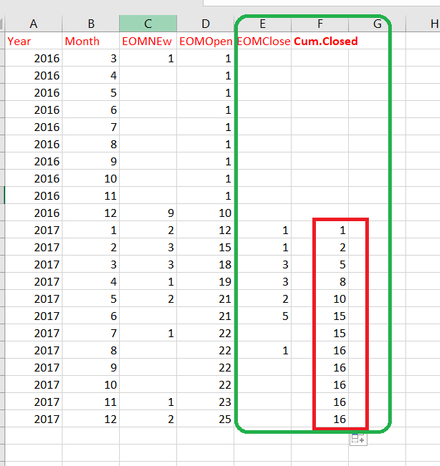- Power BI forums
- Updates
- News & Announcements
- Get Help with Power BI
- Desktop
- Service
- Report Server
- Power Query
- Mobile Apps
- Developer
- DAX Commands and Tips
- Custom Visuals Development Discussion
- Health and Life Sciences
- Power BI Spanish forums
- Translated Spanish Desktop
- Power Platform Integration - Better Together!
- Power Platform Integrations (Read-only)
- Power Platform and Dynamics 365 Integrations (Read-only)
- Training and Consulting
- Instructor Led Training
- Dashboard in a Day for Women, by Women
- Galleries
- Community Connections & How-To Videos
- COVID-19 Data Stories Gallery
- Themes Gallery
- Data Stories Gallery
- R Script Showcase
- Webinars and Video Gallery
- Quick Measures Gallery
- 2021 MSBizAppsSummit Gallery
- 2020 MSBizAppsSummit Gallery
- 2019 MSBizAppsSummit Gallery
- Events
- Ideas
- Custom Visuals Ideas
- Issues
- Issues
- Events
- Upcoming Events
- Community Blog
- Power BI Community Blog
- Custom Visuals Community Blog
- Community Support
- Community Accounts & Registration
- Using the Community
- Community Feedback
Register now to learn Fabric in free live sessions led by the best Microsoft experts. From Apr 16 to May 9, in English and Spanish.
- Power BI forums
- Forums
- Get Help with Power BI
- Developer
- cumulative totals of measure
- Subscribe to RSS Feed
- Mark Topic as New
- Mark Topic as Read
- Float this Topic for Current User
- Bookmark
- Subscribe
- Printer Friendly Page
- Mark as New
- Bookmark
- Subscribe
- Mute
- Subscribe to RSS Feed
- Permalink
- Report Inappropriate Content
cumulative totals of measure
How to calculate the cumulative totals of measure in following example:
The model contains a date table and fact table called Internal.The measure EOMClosed is obtained by using
EOMClosed = CALCULATE(distinctcount(Internal[ID]),userelationship(Internal[CloseDate],'Date'[Date]))
The measure when sliced by Date dim gives me number of tickets that got closed each month.I want to make it like cumulative/running.
EOMOpen is number of open tickets each month sliced by date like :
EOMOpen = CALCULATE(DISTINCTCOUNT([ID]),FILTER(ALL(Internal),(Internal[CloseDate]=blank()||Internal[CloseDate]>EOMONTH([OpenDate],0))&&Internal[FirstDate]<=max('Date'[Date])))
I tried to do the same with EOMClosed but turns out the userelationship is not propogating the context to filter function :
EOMClosed = CALCULATE(distinctcount(Internal[ID]),userelationship(Internal[CloseDate],'Date'[Date]),filter(Internal,[CloseDate]<=max(Date[Date]))
Pls guide me to fix the EOMClosed to get cumulative values.
Here is a sample file:
Solved! Go to Solution.
- Mark as New
- Bookmark
- Subscribe
- Mute
- Subscribe to RSS Feed
- Permalink
- Report Inappropriate Content
Hi @Anonymous,
Try this formula, please.
EOMClosed =
CALCULATE (
DISTINCTCOUNT ( Internal[ID] ),
USERELATIONSHIP ( Internal[CloseDate], 'Date'[Date] ),
FILTER (
ALL ( 'Date'[Date] ),
'Date'[Date] <= EOMONTH ( MAX ( 'Internal'[OpenDate] ), 0 )
),
ISBLANK ( Internal[CloseDate] ) = FALSE ()
)
Best Regards,
Dale
If this post helps, then please consider Accept it as the solution to help the other members find it more quickly.
- Mark as New
- Bookmark
- Subscribe
- Mute
- Subscribe to RSS Feed
- Permalink
- Report Inappropriate Content
Hi @Anonymous,
Try this formula, please.
EOMClosed =
CALCULATE (
DISTINCTCOUNT ( Internal[ID] ),
USERELATIONSHIP ( Internal[CloseDate], 'Date'[Date] ),
FILTER (
ALL ( 'Date'[Date] ),
'Date'[Date] <= EOMONTH ( MAX ( 'Internal'[OpenDate] ), 0 )
),
ISBLANK ( Internal[CloseDate] ) = FALSE ()
)
Best Regards,
Dale
If this post helps, then please consider Accept it as the solution to help the other members find it more quickly.
Helpful resources

Microsoft Fabric Learn Together
Covering the world! 9:00-10:30 AM Sydney, 4:00-5:30 PM CET (Paris/Berlin), 7:00-8:30 PM Mexico City

Power BI Monthly Update - April 2024
Check out the April 2024 Power BI update to learn about new features.

| User | Count |
|---|---|
| 13 | |
| 2 | |
| 2 | |
| 1 | |
| 1 |
| User | Count |
|---|---|
| 20 | |
| 3 | |
| 2 | |
| 2 | |
| 2 |


